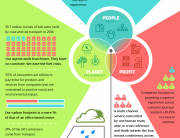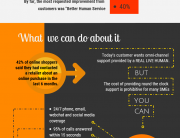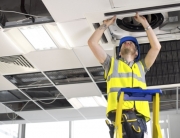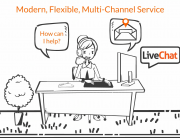Is the traditional office on its last legs?
A competitor recently celebrated opening an office purpose built for its UK operation. Carving into 18 acres of countryside, they have dislodged many animals. The build itself produced thousands of tonnes of pollution. It brought trucks to an unspoilt area of Wales. Their recent promotional material hails this as a major step to the future. It’s a shining example of the modern office!
This building will draw several hundred people to its confines every day. It will produce a staggering 28000 tonnes of greenhouse emissions every year. Not to mention the exhaust fumes produced by the hundreds of cars that will transport staff every day. Thank goodness they included a pub in the design. Anyone would need a drink after realising the environmental impact they are having!
Office woes…
The same is true in British business. Companies are always eager to unveil their latest headquarters. But with technology as it is, there is no business advantage in concentrating all your activity under one roof. Companies are scaling down their administrative operations and managing with smaller teams. These teams are often home based. They meet in short-term rental office spaces from companies like Regus or Officegenie. Businesses are moving out. Developments once hailed as the future are now seen as crumbling follies. Cutting down on real estate means cutting down on environmental impact. You reduce costs by using fewer resources. You get street cred in a modern, environmentally conscious world.
We have all seen that post-apocalyptic future: Abandoned cityscapes filled with half destroyed skyscrapers. In reality, in many cities, abandoned office buildings are close to dereliction. These buildings provide a great recycling opportunity. Offices repurposed into accommodation are usually great places to live. But the sites often prove difficult to redevelop due to the specific requirements they have been built to. Take the EMI building in Southall, for example. It remained abandoned for many years after operations shifted abroad. Sadly the UK is littered with the remains of this grandeur and many iconic buildings are left to crumble. Once a building is built, the only green thing to do is keep using it. Either by repurposing the structure or by turning it into a communal garden, the space needs to be used. A ruin is not only an eyesore but an environmental black hole. Many end up as a rubbish dump.
Battery or free range?
When looking to develop your business it’s more important than ever to know what you are paying for. In an environmentally conscious world, customers are demanding green credentials. By working with an outdated provider you could be making an expensive mistake. A modern solution should be exactly that, it should not involve paying for a relic of the past.








